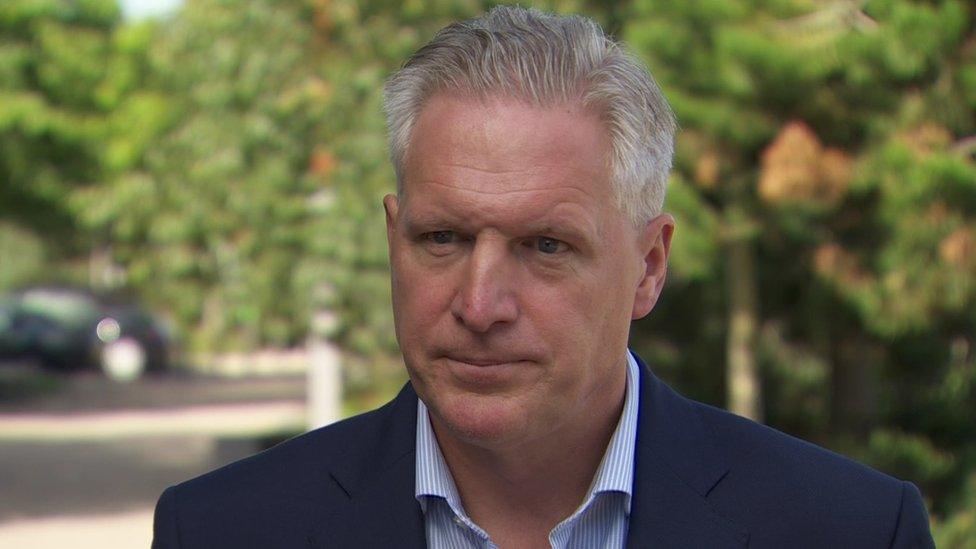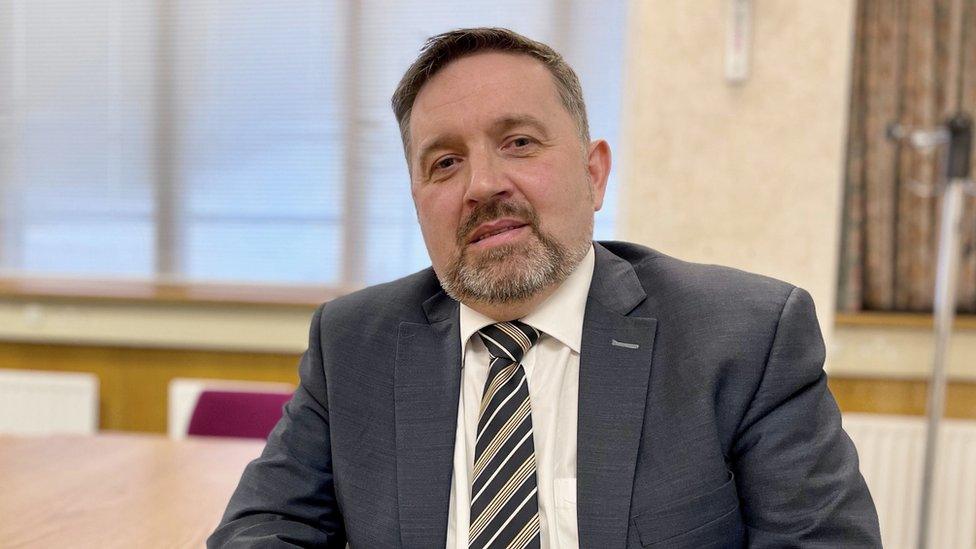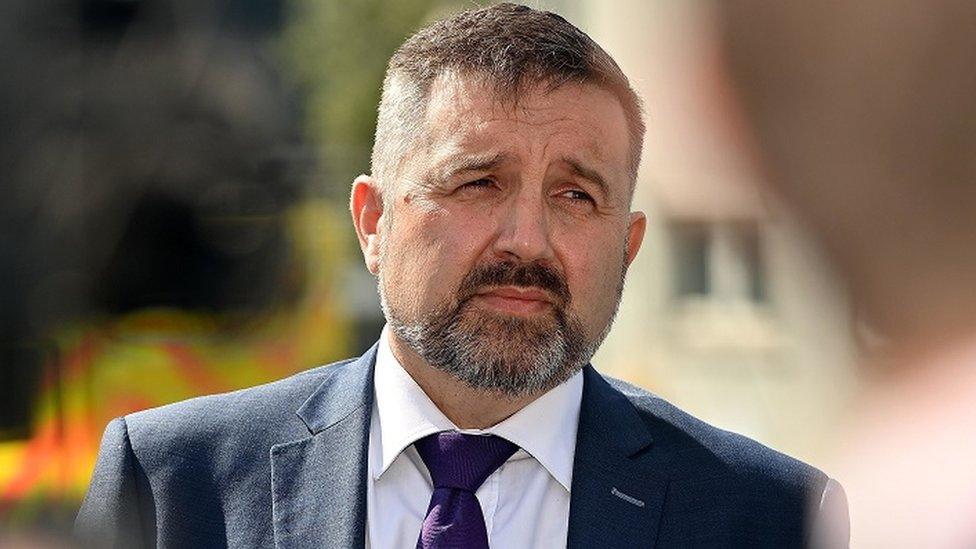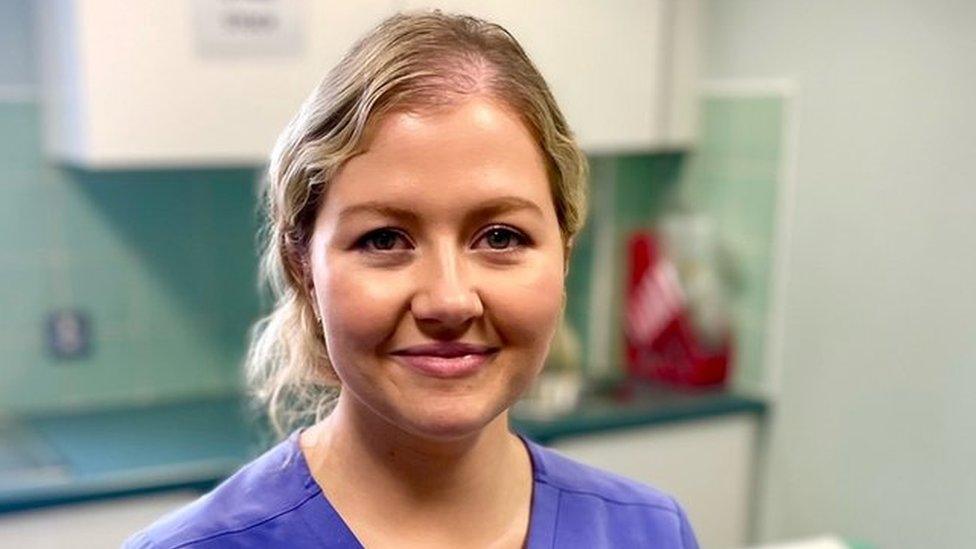GPs: Insurance bill fund of £5m included in new contract
- Published

Northern Ireland GPs must pay about £10,000 a year on average to insurance themselves before they can treat patients
Northern Ireland's GPs have agreed a new contract which for the first time will help cover the cost of insuring them against medical negligence claims.
The Department of Health has set aside £5m to help GP surgeries meet the insurance costs.
The British Medical Association (BMA) has welcomed the one-year funding.
It is among changes in the 2024/25 GP contract aimed at cutting the cost of running a GP practice and stemming the flow of doctors from the sector.
All GPs must have insurance known as GP indemnity to work in the UK.
The NHS already pays for GP indemnity in other parts of the UK, but until now GPs in Northern Ireland had to pay their own indemnity bills.
It can cost each full-time GP up to £10,000 a year according to the BMA, which argued it was one of the factors which discouraged medical graduates from choosing to work in Northern Ireland.
Health Minister Robin Swann said the agreement of the GP contract for 2024/25 was "very welcome news" and an important step towards helping to stabilise GP services.
But he acknowledged there was "much more work to be done".
'Stood out like a sore thumb'
The BMA's contract negotiations were led by Belfast GP Alan Stout, who chairs the Northern Ireland General Practitioners Committee (NIGPC).

Dr Alan Stout said an average practice would receive about £15,900 for this financial year to cover indemnity
"Equalising the indemnity provision for GPs in Northern Ireland was a red line for the negotiators," he said.
State-backed indemnity schemes were introduced in England and Wales five years ago, external and since then Northern Ireland has "stood out like a sore thumb," according to Dr Stout.
He said indemnity fees "not only harmed us retaining our GPs because they could see this increased cost of being here, but it also then made it virtually impossible for us to attract people from elsewhere to come and work here".
Dr Stout explained that the £5m would be shared out between practices, based on their number of patients, meaning an average practice will receive about £15,900 for this financial year.
"We will continue to work with the department to bring forward a longer-term indemnity solution that ensures we have parity with the rest of the UK," he added.
'No substantial budget increase'
The Department of Health said: "Despite the significant challenges facing the health budget, we have been able to reach agreement within the existing GMS (General Medical Services) budget envelope."
Northern Ireland's health service is under huge pressure, with increasing demand on GP surgeries, hospitals and social care services fuelled by an ageing population with increasingly complex health needs.
In recent years, 25 GP practices in Northern Ireland have handed back their contract, external to the health service, meaning health authorities often have to step in to run services until a new contractor can be found.
"Stabilising GP services is of crucial importance and I believe this contract is a step forward in that regard," Mr Swann said.
"Whilst the budget provided to me by the executive does not allow me to make a substantial increase in the overall value of the contract, I am pleased that the agreement announced today makes significant progress against key aims identified by GPs in their negotiations, including provision of dedicated funding for their indemnity costs."

Robin Swann said support for GPs had been a key priority since he returned to his post
Last month, Stormont ministers agreed an overall budget for Northern Ireland, under which the Department of Health was allocated the largest share of day-to-day funding, receiving £7.76bn.
However, Mr Swann, from the Ulster Unionist Party (UUP), voted against the budget, saying it represented "a 2.3% cut on what we receive and on what we spent last year".
He had requested a budget of £1bn and warned that the shortfall would negatively affect hospital waiting lists, pay settlements, GP services and domiciliary care packages.
In order to simplify how GPs access payments from the health service, the Department of Health and the BMA agreed to move payment arrangements for some services into what is known as "core funding".
Dr Stout said this would streamline income for surgeries and provide "some much-needed simplification of current arrangements".
"I am pleased that practices will now see the bulk of their funding paid in 12-monthly instalments to help with cashflow and budget planning," he added.
"We were also able to ensure that no practice will lose any of their current income as there will be a financial floor for everyone."
- Published25 April 2024

- Published16 April 2024
